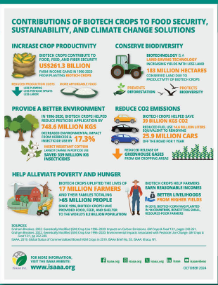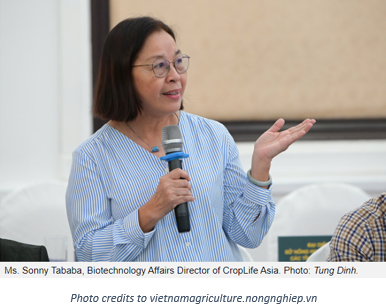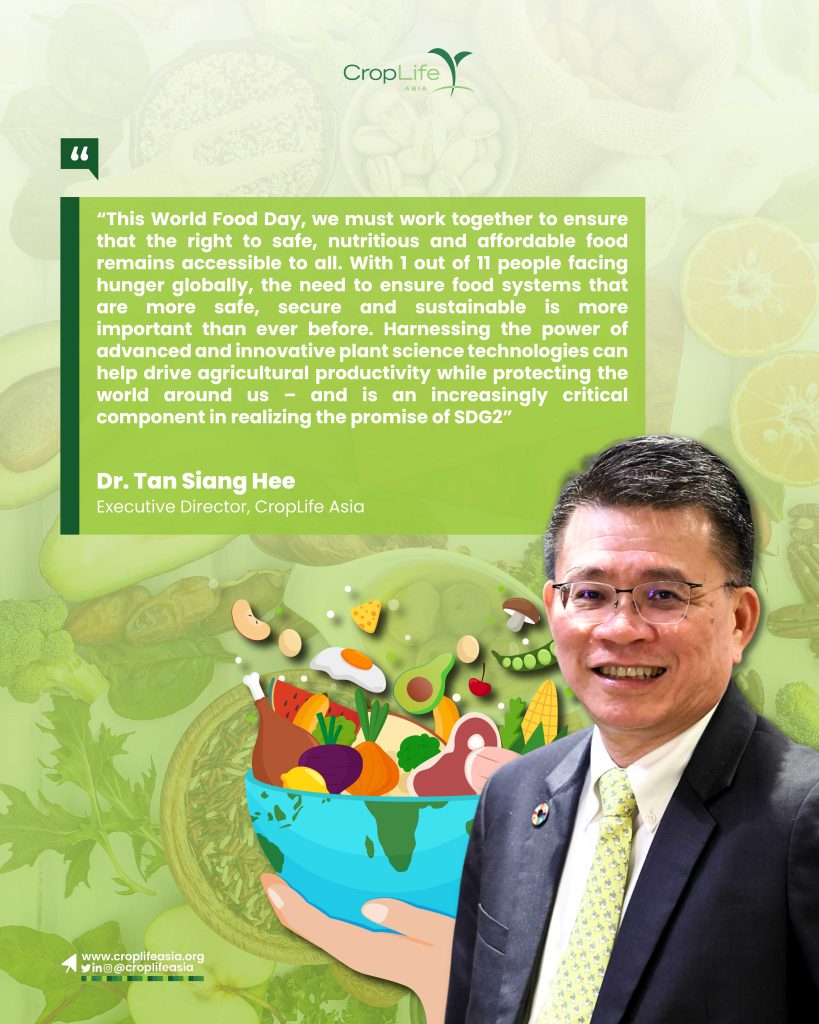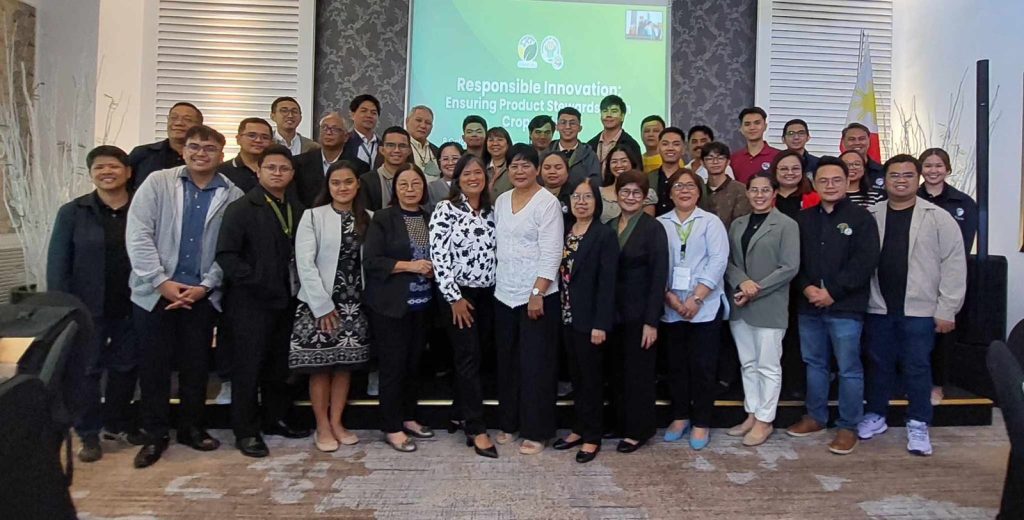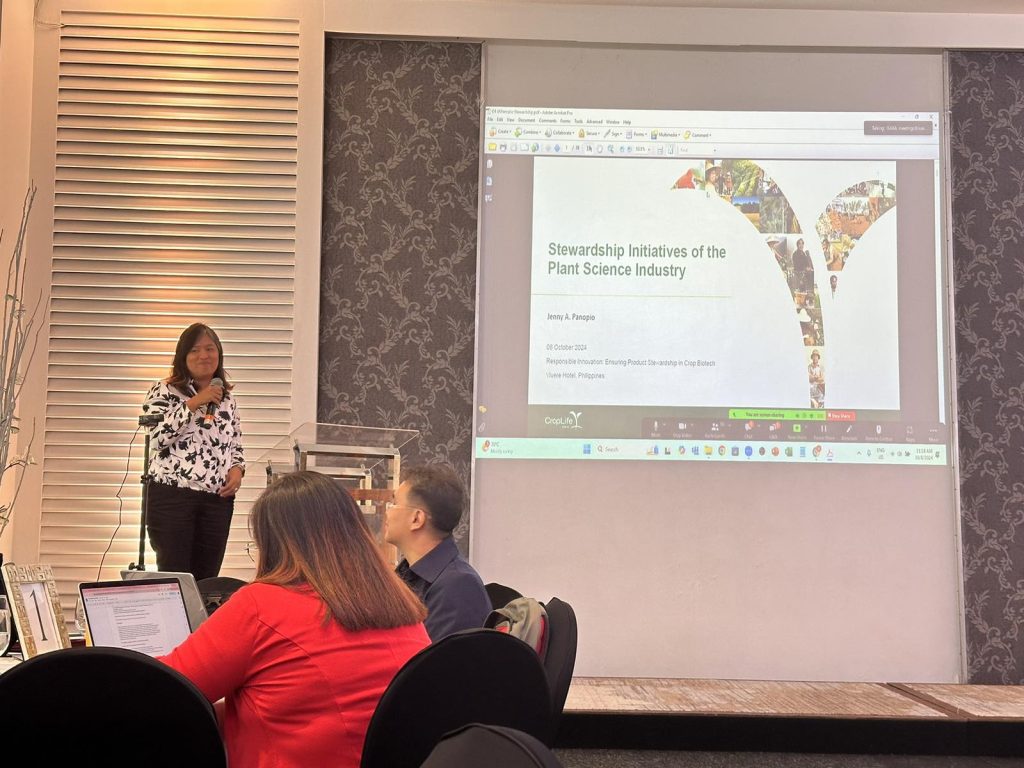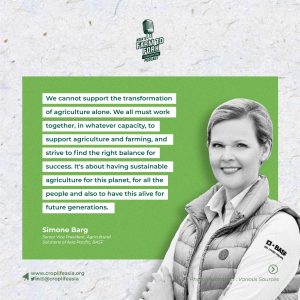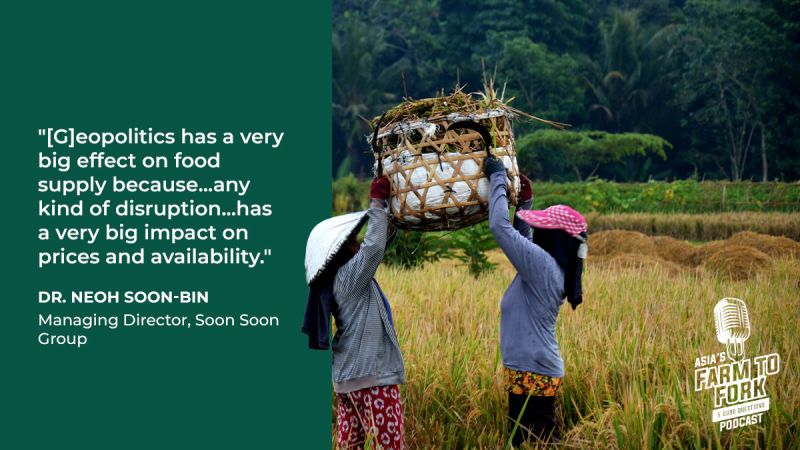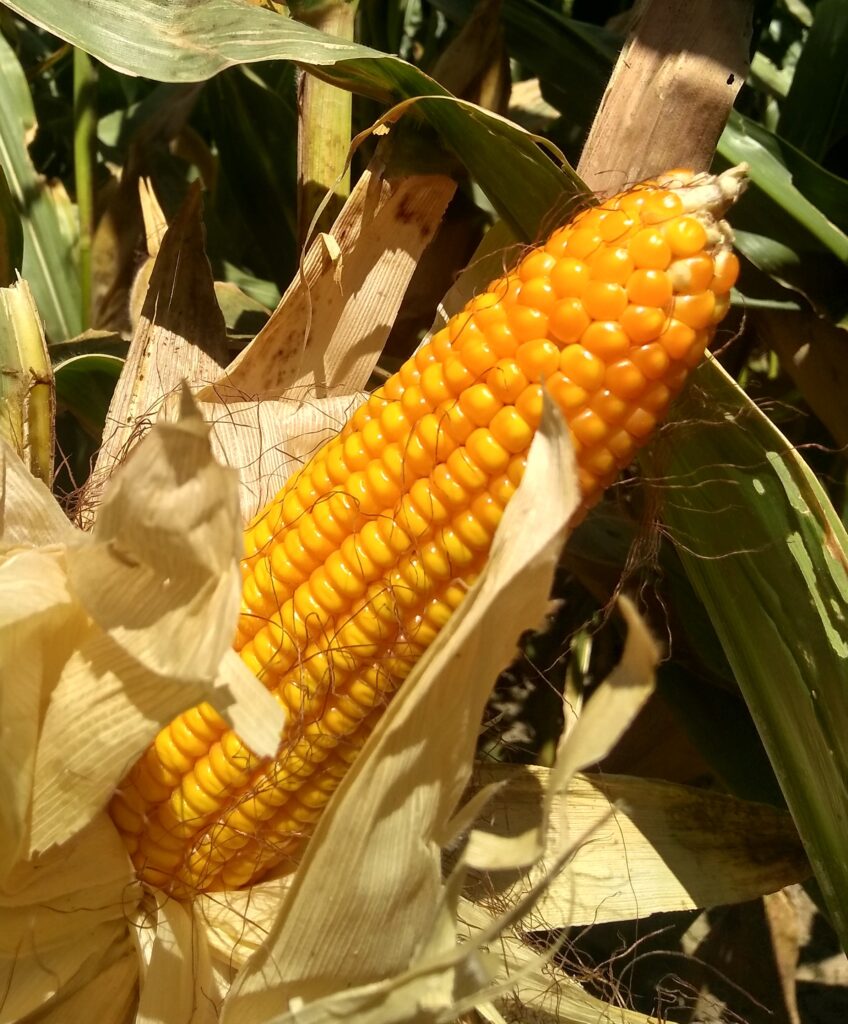Stay rooted in the latest agriculture news updates!
PRESS RELEASE:
CropLife International welcomes USMCA dispute settlement ruling – CropLife International, the trade association representing the plantscience industry, has today voiced its support for the outcome of the United States-Mexico-Canada freetrade agreement (USMCA) dispute settlement process in which Mexico is formally requested to repeal its Decree prohibiting the use or import of GM corn. Read more…
Global & Regional News
World Insights: COP16 draws key roadmap for global fight against desertification
The conference concluded with a broad consensus on prioritizing land restoration and drought resilience in national policies, expanding international cooperation, and recognizing these as essential strategies for food security and climate adaptation. Read more…
Panel rules in favor of US in GM corn dispute
With Mexico accounting for nearly 50% of total US corn export sales annually, US corn growers hailed the decision as a major victory. Read more…
Country News
Australia/New Zealand
Australian OGTR Receives License Application for Field Trial of GM Canola
Australia’s Office of the Gene Technology Regulator (OGTR) has received license application DIR 212 from the University of Adelaide to conduct a field trial of genetically modified (GM) canola with increased photosynthesis and photorespiration. Read more…
New Zealand Releases Proposed Updates on Gene Technology Framework
The Government of New Zealand has issued the proposed Gene Technology Bill 2024 and is now going through the parliamentary process. The Bill includes several updates to the existing regulatory procedure implemented in the country. Read more…
China’s record farm yields see fertiliser on its way out as advanced tech is in
Modernisation efforts come as food-security stability grows more critical in China’s agrarian undertakings. Read more…
China’s crop import curbs causing soybean shortage
Some soybean crushers in Dongguan in Guangdong province have had to suspend operations for the last three weeks, traders say. Read more…
China boosts financial support in agriculture to strengthen food security
Chinese authorities on Friday called for increased financial support to stabilise key agricultural products, including grain, as part of broader efforts to ensure food security for China’s 1.4 billion population. Read more…
India
UP govt promoting organic farming
Chief Minister Yogi Adityanath envisions Uttar Pradesh as the nation’s hub for organic farming. To achieve this, he actively promotes the practice on every possible platform, advocating for the integration of technology to enrich this traditional Indian agricultural method, officials said in a statement here on Thursday. Read more…
Indonesia
JAKARTA – Minister of Agriculture (Mentan) Andi Amran Sulaiman emphasized the importance of food security to face the challenges of climate change and the global geopolitical crisis in order to maintain national food sustainability. Read more…
Govt to mandate use of 20% village funds for food security
Minister of Villages and Development of Disadvantaged Regions, Yandri Susanto, has announced that he will soon issue a regulation requiring that a minimum of 20 percent of village funds be allocated to support food security efforts. Read more…
Korea
The partnership includes strengthening agriculture R&D, smart agriculture and agriculture mechanization. Read more…
Minister officiates RI-S Korea’s energy-agriculture cooperation
This project would integrate new renewable energy technology with the agricultural sector and offer innovative solutions in the Food–Energy–Water (FEW) Nexus synergy. Read more…
Agro-food exports in Oct. rise for 14th straight month to USD 8.2B
By item, the export of processed rice products such as frozen gimbap (seaweed rice rolls), instant rice and tteokbokki (spicy rice cake) rose 41.9% from the same period last year to USD 250 million. Read more…
Japan
Japan Remains a Key GM Product Import Market
The Government of Japan has approved a total of 334 genetically modified products for food use as of September 2024. Read more…
Malaysia
Govt to diversify padi cultivation areas to tackle climate impact
The government plans to diversify mass padi cultivation areas across the country as a long-term strategy to mitigate the impact of climate change on staple food production. Read more…
Pakistan
The Agriculture Department’s Pest Warning team raided a fake pesticide manufacturing facility in BCG Chowk, Mohallah Peer Bukhari, and seized fake pesticides worth Rs 300,000. Read more…
Philippines
National Biotechnology Week 2024 focuses on Biotech’s role in the education, innovation,
The Commission on Higher Education (CHED) and the University of the Philippines Los Baños (UPLB) officially launched the celebration of National Biotechnology Week (NBW) 2024 from November 25 to 29, 2024. Read more…
DA, DTI forge alliance to boost PH agri exports
The Department of Agriculture (DA) and Department of Trade and Industry (DTI) have formalized a collaboration to enhance Philippine agricultural exports and address market barriers. Read more…
Taiwan
Taiwan plans to set up drone testing facility in Chiayi –
Taiwan will set up a large unmanned aerial vehicle (UAV) testing facility in Chiayi County to help establish its drone supply chain and a higher share of the global market, Industrial Development Administration (IDA) Deputy Director-General Tsou Yu-hsin (鄒宇新) told CNA in a recent interview. Read more…
Thailand
Agriculture and food sectors seek to cut emissions
Agriculture and food sectors are considered to be among the ranks of greenhouse gas emitters, having emitted around 54 billion tons of carbon-dioxide equivalent, or one-third of global emissions. Read more…
Thailand’s agriculture predicted to grow by 1.8-2.8% in 2025
Thailand’s agriculture sector is expected to record growth between 1.8% and 2.8% next year, helped by factors such as secure water resources, an improving economy and higher demand for farm produce in the global market, according to the Office of Agricultural Economics (OAE). Read more…
Singapore
Fish farms adopting tech to raise productivity amid rising operating costs
Some local fish farms have turned to technology to increase productivity, amid operating costs rising by as much as 25 per cent, and stiff competition from overseas seafood suppliers. While the government has recently launched the Singapore. Read more…
Vietnam
Approval of the biotechnology project in the field of environmental protection
On December 24, Deputy Prime Minister Tran Hong Ha signed Decision No. 1639/QD-TTg approving the project on the development of biotechnology in the field of environmental protection. Read more…
Vietnamese fruits and vegetables are increasingly favored in Australia
Vietnam is the third-largest supply source of vegetables, fruits, and processed products for Australia in the first 10 months of 2024, reaching USD 109.68 million, up 35.4% over the same period last year. Read more…
Agriculture sector records trade surplus this year
This year, the agriculture sector’s production value is estimated to increase by over 3.2 per cent, while agricultural, forestry and fishery export value is expected to reach a historic high of $62.4 billion, up 18 per cent year on year. Read more…
Plant Science Updates
Scientists Innovate Breeding Strategies to Create Climate-smart Crops
A recent study has reported a novel breeding strategy to rapidly create climate-smart crops that show higher yield under normal conditions and greatly rescue yield losses under heat stress both in staple grain and vegetable crops. Read more…

Experts Develop Heatwave-tolerant Potatoes
A study published in Global Change Biology reports about genetically engineered potato plants that can grow 30% larger tubers under heatwave conditions without affecting the nutritional quality of the tubers. Read more…
GM Soybeans Show No Adverse Effects on Rat Health and Gut Microbiota
GM soybean was developed to resist herbicides and boost crop yields by controlling weeds while reducing environmental impact and crop residues. In this study, the researchers evaluated the effects of a diet containing 70% GM soybean on Sprague-Dawley rats and compared the body weight, hematology and blood biochemistry, bacterial populations, and antibiotic resistance to the non-GM diet group. Read more…
Low GI Rice Can Curb Asia’s Diabetes Epidemic and Enhance Farmers Income, Finds Report
Scientists from IRRI and the Max Planck Institute, in a recently published study, highlight the potential of Low GI rice to combat diabetes while creating opportunities for farmers in health-conscious premium markets. This rice variety could revolutionize global nutrition and public health. Read more…
Credits to the owners of the news and articles embedded on this post.

